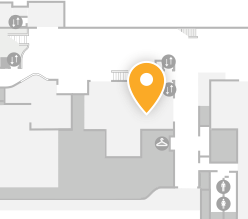
Roman Palace Burning (Primary Title)
Rome Burning (Former Title)
Pierre-Jacques Volaire, French, 1729 - ca. 1790 (Artist)
This dramatic painting was completed during Volaire’s
fifth and final year living in Rome and is the French
artist’s first depiction of a large-scale conflagration.
Themes of catastrophe and natural disaster would
become central to his art after he moved to Naples later
that year, where he witnessed the eruption of Mount
Vesuvius, the legendary volcano that had violently
eradicated the ancient cities of Pompeii and
Herculaneum in the first century. The event had been
widely anticipated and attracted tourists from across
Europe, and the expectation of the spectacle likely
influenced Volaire’s choice of subject for Roman Palace
Burning. The nighttime scene combines contemporary
motifs with a blend of elements of real and imaginary
architecture. On the left appears the terrace of the
early 18th-century Port of Ripa Grande, while the
circular tower and the colonnade engulfed by intensely
luminous flames evoke the ancient Roman temples
of Romulus and Saturn. This alarming capriccio
(imaginary scene) allegorically connects the burning
of Rome by Emperor Nero in 64 ad with the economic
crisis that occurred under the reign of Pope Clement
XIII beginning in 1758.
Signed and dated lower right: Le che[valier] p. j. Volaire / fecit in roma. 1767
The Jordan and Thomas A. Saunders III Collection
Some object records are not complete and do not reflect VMFA's full and current knowledge. VMFA makes routine updates as records are reviewed and enhanced.

